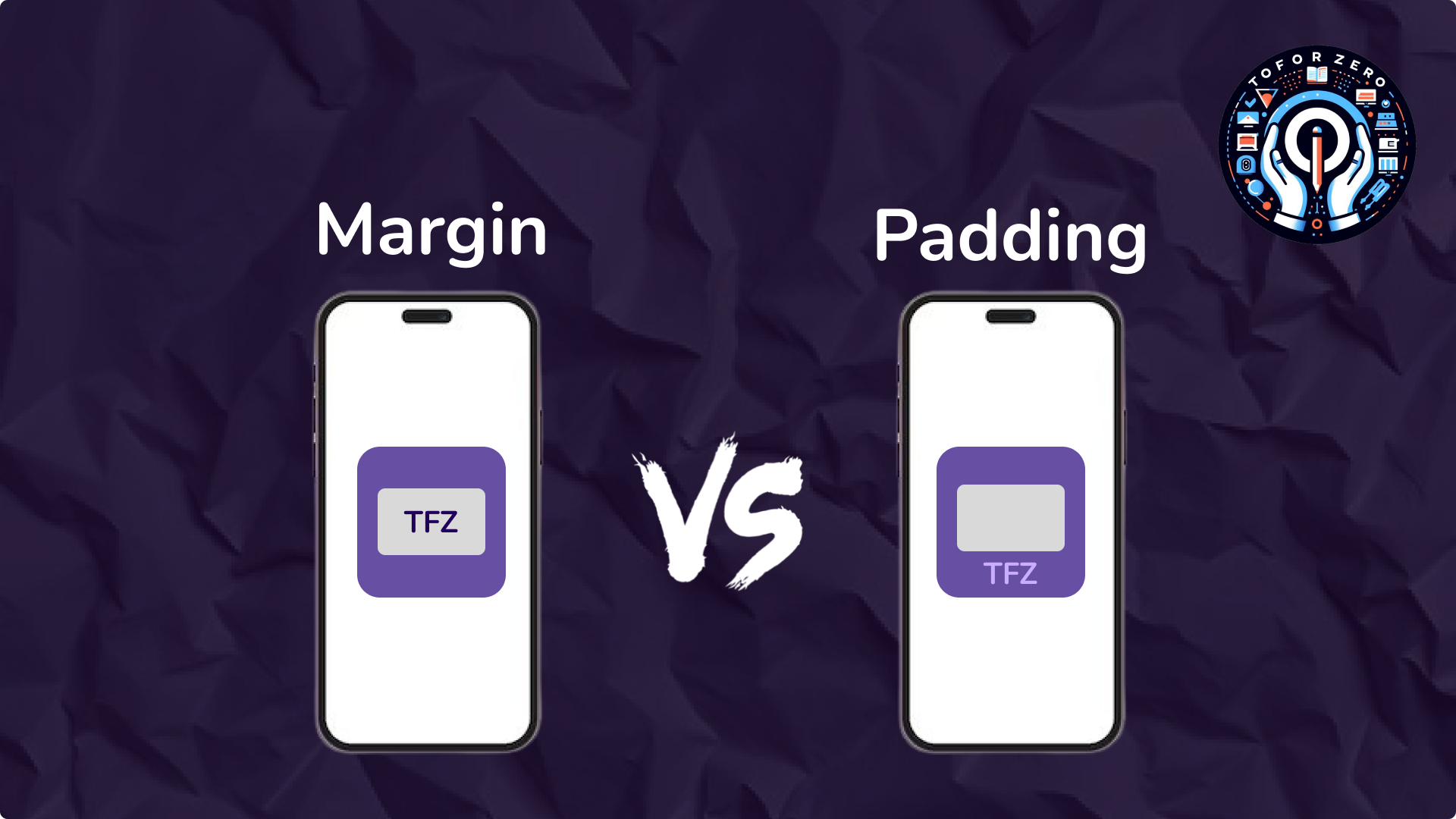Back to blog


September 07, 2024


Gautam Patoliya, Deep Poradiya
Tutor HeadDifference Between Margin and Padding🌟

Introduction
- In CSS, margin and padding are two key properties that control the spacing around elements on a webpage. Though they may seem similar, they serve different purposes and are used in different ways. Understanding the difference between margin and padding is essential for creating well-structured and visually appealing layouts.
What is Padding?🛠️
- Definition:
- Padding is the space between the content of an element and its border. It creates an "inner space" around the content within the element.
How Padding Works:
- When you add padding to an element, it increases the space between the content and the element's border, but it does not affect the space outside the element.
- Syntax:
element {
padding: value; /* Example: padding: 10px; */
}
- Example:
<div style="border: 2px solid black; padding: 20px"> This div has padding of 20px. </div>
- Explanation: In this example, the content inside the div is pushed 20px away from the border on all sides, creating space within the element.
- Use Case:
- Padding is useful when you want to create space inside an element, such as when you want text to be spaced away from the edges of a box or a button.
What is Margin?🧭
- Definition:
- Margin is the space outside an element's border. It creates "outer space" between the element and its surrounding elements.
How Margin Works:
- When you add margin to an element, it increases the space around the element but does not affect the space inside the element.
- Syntax:
element {
margin: value; /* Example: margin: 10px; */
}
- Example:
<div style="border: 2px solid black; margin: 20px"> This div has a margin of 20px. </div>
- Explanation: In this example, the div is placed 20px away from surrounding elements on all sides, creating space around the element.
- Use Case:
- Margin is useful when you want to create space between elements, such as separating a group of boxes, paragraphs, or images on a page.
Key Differences Between Padding and Margin🔍
- Purpose:
- Padding: Creates space inside an element, between the content and the border.
- Margin: Creates space outside an element, between the element and surrounding elements.
Impact on Element Size:
- Padding: Increases the size of the element, as the padding is added to the inside of the element.
- Margin: Does not increase the size of the element; it simply creates space around the element.
Visual Representation:
- Padding:
- If you add padding to a div, the content inside the div will move inward, creating more space within the div.
- Margin:
- If you add margin to a div, the entire div will move away from other elements, creating more space around it.
CSS Box Model:
- Padding: Part of the element's box model, included inside the border.
- Margin: Outside the element's box model, creating space beyond the border.
CSS